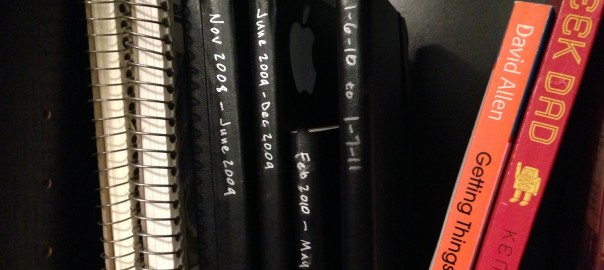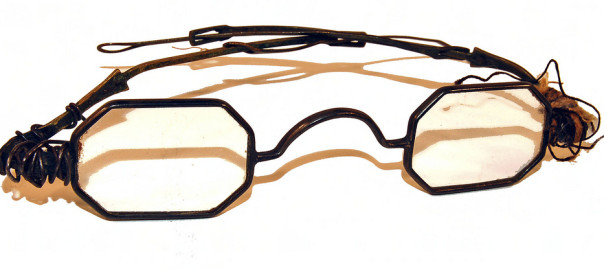The other day, as I was meeting with a colleague, he expressed surprise at how I was taking notes. “You keep all your business notes in a Moleskine?” It must have seemed a bit unusual – most people around here take notes on letter-size notepads, scratch paper, or, in a few cases, business planners. I’m the only one using a “fancy” journal.
It seemed strange to me, too, for a while. These notes aren’t anything really important, certainly nothing personal, so shouldn’t I just use regular old paper? I tried that for a couple of months and ran into a few problems. Sure, most of my notes weren’t that important and I would never look at them again, but what about those that were important? Where would I keep those? Further, I wound up with stacks of project and meeting notes that I needed to save for reference, but once I tore them out of the pad, they would curl up, rip, and become very annoying to file away.
I tried all sorts of things to keep these notes under control – copying the important ones into OneNote, taking pictures and importing them to Evernote, using Outlook to store important information – but I could never find a solution that met all my needs. It had to be:
- Mindless: I wouldn’t have to think about where I was going to record something.
- Mobile: It needed to be with me all or most of the time.
- Reliable: It had to be there when I needed to record something AND when I needed to retrieve something.
Then I realized that I already had a great solution: my journal. I’ve used journals off-and-on since college, starting with ring-bound sketchbooks and trying several other varieties and sizes before settling on black, 5″x8″ soft-covers. I’m currently using a Moleskine, but my preferred brand is ecosystem. (Thanks, Michael Hyatt!)
Daily Work Matters
Using a journal at my current job, though, required a subtle mental shift for me. Continue reading Keeping Track of What Matters: Why I Use a Journal at Work



